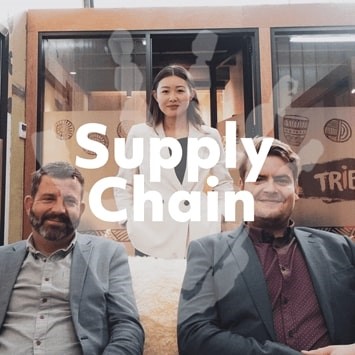Tribe's Sales & Marketing team share their industry insight for Q2 of 2020.
![]()
Head of Sales & Marketing, Cameron King:
I have worked in recruitment for 13 years now (starting not long before the global financial crisis) and the last three months have certainly been the most challenging. I don’t think any of us celebrating New Year's Eve 2019 would have predicted just months later we would be facing the biggest global health crisis the world has ever seen and the significant economic impact this has caused. The severity of the impact will depend on what market, industry or channel you work in. I’m keen to share some thoughts and insights from Tribe’s Sales & Marketing team of what we are seeing in the market. We split our team across two sectors, FMCG and Services.
FMCG
- I have spoken to many FMCG industry leaders over the past few months who have faced the biggest challenge of their careers to date. Many were classified as essential services and had little notice to prepare their teams for remote working during lockdown while making make sure they had increased health & safety measures in place. Some of these businesses faced extreme pressure to keep up with demand and panic buying. IRi’s Emerging from COVID report shows categories like baking, personal care & paper products experienced some of the biggest percentage growth.
- These demands put extreme pressure on supply, with a lot of NZ manufacturing businesses already at capacity and offshore manufactured goods facing weeks to months to get their products here. Most of these businesses are still trying to catch up.
- Many suppliers faced extreme growth in the grocery channel, with grocery (consumable) sales up to $376M (17 percent) in March. However, most also supply other significant channels and lockdown resulted in hospitality (restaurants, bars, cafes, accommodation) falling $338M (30 percent), according to Stats NZ. This has a massive impact on the overall business. Since moving to Level 1, consumers are continuing to shop online more and doing bigger shops as opposed to multiple a week. This will result in businesses assessing their channel strategies and continuing to advance their digital plans.
- From the conversations I have had with FMCG leaders over the past few months, they’ve all been incredibly proud of how their teams adapted quickly and played their part in supplying essential products to keep NZ moving safely. ALL have said how remote working has been very successful and something they will continue to encourage.
- From what I can tell, the FMCG sector has remained relatively redundancy free, with a lot of businesses relocating resources internally or trying to ride out the storm.
- On top of all the COVID-19 challenges, the FMCG sector has also been working through another huge and complex change with New World moving to a centralised buying model. This is largely to do with simplifying displaying and co-op and will likely have an impact on how suppliers structure their field/trade teams in the future. There really is never a dull day within this industry!
Sales & Marketing - Services, Suzie Gates:
Services
- As expected, the travel, tourism and hospitality sectors have been most significantly impacted. Most of these businesses have halved in size, for example, Air NZ transitioning to domestic airline only.
- Other businesses impacted by COVID-19 also had restructures and redundancies, often with contractors being the first to go and employees taking short term salary reductions e.g. 80-95 percent of a full salary with no bonuses to keep all or the majority of staff employed. Some offices have been taking annual leave to make up the difference or working four days. The majority we know of won’t be handing out bonuses at the moment.
- SaaS and online businesses have had significant growth shown through new hires and year-on-year growth, such as Tradify, Narrative, Pluxure and Quantiful.
- Services companies who’ve had more time to think about their business as a whole have focused on their customer experience. They’ve uncovered the layers and set up processes to ensure the customer is at the heart of everything they do. The majority of businesses have fast-tracked their digital plans for survival.
- Some companies have used this time to make a physical change – some have updated their physical offices/customer areas, some of the bigger corporates have the option to work from home for three days a week with the two days in the offices agreed as a team. On the whole, this appears to have worked well for companies and output is positive. But nothing is fixed! Some businesses are moving from one day in the office to three. Some office spaces are only at 10 percent capacity, which can impact energy levels (and raise questions about office space). A good way to ensure teams are more productive is to keep their days in the office together.
- In terms of specific roles in the services, new sales and marketing brand and comms roles have decreased and there has been an increase in data-led marketers, as you’d expect BDM and sales roles are still going strong.
The sales & marketing sector remains a challenge from a recruitment perspective, with demand for jobs by far exceeding job vacancies. We're working really hard to provide support and direction to people whose jobs have been impacted by COVID. Each week that goes by seems to be more positive with more activity in the market but it’s hard to plan too far ahead at the moment. More changes are expected when the Government subsidy comes to an end and with elections coming up. However, with one of the most open economies in the world at the moment, we remain optimistic!





